

Future of Education
“Digital technologies, when thoughtfully integrated into the classroom, can significantly enhance student learning.”
Paul Crone, Director, National Association of Principals and Deputies (NAPD) Page 04


www.businessnews.ie
“The system must be built on collaboration: between the Government, academia and industry.”
James Lawless, Minister, Department of Further and Higher Education, Research, Innovation and Science Page 08

This programme is opening doors to higher education for students who may have felt locked out in the past.
~Tanya Jones,
Deputy Director,
National Tertiary Office Read more on Page 03
Your Complete School Management Information System
Compass Education is transforming school operations across Ireland, helping make the school day more productive, more impactful, and more enjoyable. Discover how your school community can thrive with Compass MIS. compass.education/ie

An easier way to find learning opportunities across Europe
A free online platform aimed at learners and career movers of all ages has streamlined the process of finding and then applying for jobs and study opportunities across Europe.
Hunting for jobs or learning opportunities across Europe has the potential to be a time-consuming, disjointed, confusing and frustrating process.
Simplifying cross-border learning

Say you’re living in Ireland but keen to study or train in France. How do you even begin to find the type of course that meets your needs? Also, how do your Irish qualifications compare to French qualification standards? Will they be of an acceptable level to employers and academic or training institutions?
This process has become much easier with the development of the free EU online platform Europass, which launched 20 years ago and was revamped five years ago. Europass features a range of tools, resources and information to support people interested in working and learning across Europe. Last year alone, it recorded 16.4 million unique visitors — around 81,000 of whom were from Ireland.
Centralised EU career platform
be someone looking for lifelong learning opportunities. Whatever you’re interested in, the platform centralises the search process, making it easier to find roles or courses in all types of fields.”
Europass features a range of tools, resources and information to support people interested in working and learning across Europe.
Once you have created a free account, you can start building your profile featuring your experiences, qualifications, languages, digital skills, interests, career goals, etc. You can then use various tools on the platform to prepare a standardised CV (widely recognised across Europe) and cover letter. CVs can also be customised to be made appropriate for specific job vacancies and courses (and in multiple languages). Digital credentials and other certificates can be stored securely in your library to help compile applications. Information and links on EU and national services are also available to help you on your learning or career journey.
Supporting and promoting mobility across Europe



“The platform is a one-stop shop that anyone can use,” says Alice Long at Quality and Qualifications Ireland (QQI), the state agency that manages the Irish National Europass Centre. “You could be a chef, working in IT or be a researcher looking for work in Europe — or you could
“Plus, there’s a common ‘translation’ tool for qualifications,” says Naomi Oldenburg, also from QQI’s Irish National Europass Centre. “This allows users to see how the level of their qualifications compares to qualification levels in other European countries. Ultimately, the whole platform has been designed to support mobility and make it easier to work and study in Europe.”
Digital inclusion and lifelong learning for the workforce of tomorrow
In the ever-evolving job market, technological advancements, shifting industries and global economic challenges are reshaping how we work.

The workforce of the future will require more than just traditional skills. In order to thrive, individuals and businesses must focus on upskilling and reskilling, no longer buzzwords, but essential strategies for navigating the ever-changing world of work.
Before entering the workforce
Ahead of upskilling and reskilling employees, we must ensure that our education system is preparing students for the future world of work. A review of education in the classroom is required to ensure that students are encouraged to question and discuss topics and critically assess information that is being given to them, to ensure they have the skills that will be required by future workforces. Critical thinking encourages students to make life decisions cautiously and conduct their own evaluations of scenarios. By using critical thinking skills in education, students can also enhance their ability to solve problems and make effective decisions.
Digital inclusion
To maintain Ireland’s competitiveness and foster enhanced economic agility, particularly given the changing international environment, there is a need to enhance digital skills across society. Digital skills development across all age
groups is crucial in fostering digital inclusion and furthering social advancement. A greater emphasis on digital skills is needed to overcome the generational, geographic and urbanrural divides across Ireland and Europe more broadly. The rollout of basic digital skills provisions across society, particularly with younger and older age cohorts, can enhance digital inclusivity and reduce the digital divide. The modern workforce is increasingly diverse and multigenerational. To ensure inclusivity and empower all workers to succeed, employers must provide opportunities for workers of all backgrounds and experiences to enhance their skills. This is particularly critical as older generations face career transitions and younger workers seek to stay ahead in their professional lives.
How technology can support Technology plays a crucial role in making upskilling and reskilling more accessible and efficient. Artificial intelligence and machine learning are already being used to create personalised learning paths, adaptive learning technologies and virtual training environments. The future of work will be driven by innovation, and as industries shift, so too must the workforce. Investing in upskilling and reskilling is no longer just a good idea; it is imperative for both employees and employers who wish to stay competitive.
Project Manager: Joseph Moore joseph.moore@mediaplanet.com Business Development Manager: Jen Church
: Ellie McGregor
Director : Samantha Taylor | Junior Designer: Ellen Cahill Senior Content Manager: Angelica Hackett O’Toole | Paid Media Manager: Jonni Asfaha
Gillian Audet Executive, Technology Ireland
Naomi Oldenburg Irish National Europass Centre, Quality and Qualifications Ireland (QQI)
Alice Long Irish National Europass Centre, Quality and Qualifications Ireland (QQI)
WRITTEN BY Tony Greenway
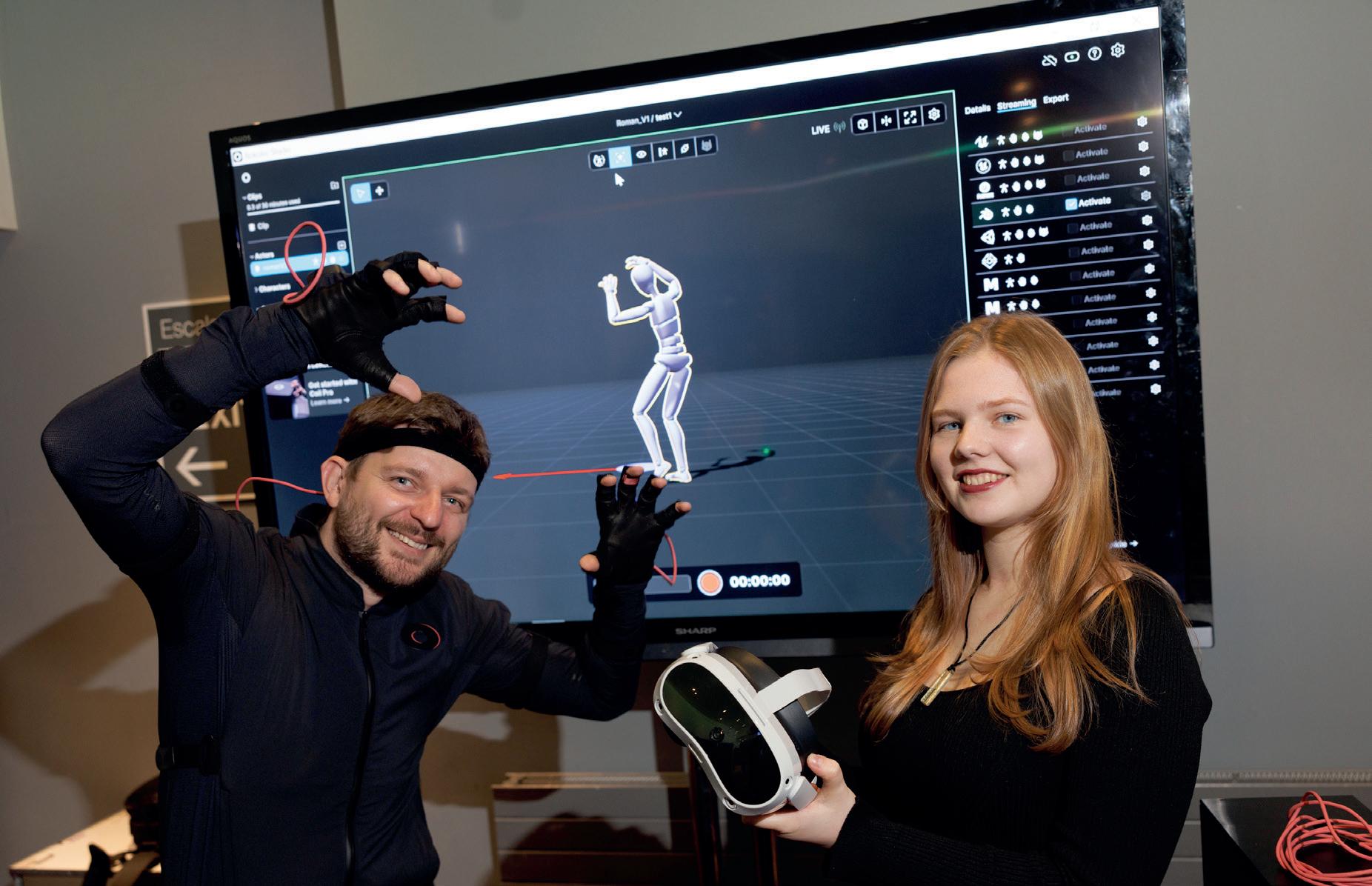
This year, nearly 40 Tertiary Bachelor’s Degrees are available to potential students.
The same Bachelor’s Degree , but with an exciting new path
Tertiary Bachelor’s Degrees provide guaranteed progression from Further Education to Higher Education in a supported environment with no points needed and no college fees while studying in an Education and Training Board (ETB).

With the CAO deadline now closed and Leaving Certificate exams upon us, students across Ireland are exploring their options.
One fast-growing alternative is the Tertiary Bachelor’s Degree – now offering almost 40 career-focused courses nationwide. With no points requirements, no college fees for the first one to two years while students are studying in an ETB and the ability to start studies close to home, this programme is opening doors to higher education for students who may have felt locked out in the past.
What are Tertiary Bachelor’s Degrees?
Developed through the National Tertiary Office (NTO) and co-designed and delivered by ETBs and Higher Education Institutions (HEI) to widen access to higher education for people of all ages, students begin their studies at a local ETB and then transition seamlessly to a partner HEI, graduating with the same recognised Bachelor’s Degree as their peers who followed the traditional route.
With smaller class sizes, careeraligned learning and access to supports and facilities from both institutions from day one, this option is ideal for students looking for a more flexible and affordable college experience — whether finishing school, coming back to education or looking to upskill later in life.
Career-focused and accessible education
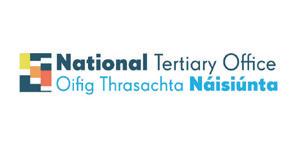
The development of tertiary education in Ireland has been closely aligned with the nation’s economic and workforce planning priorities,
ensuring that graduates are equipped with the skills necessary for success in an increasingly dynamic labour market. Tertiary Bachelor’s Degrees are developed in collaboration with industry, ensuring graduates are jobready and equipped with the skills employers are looking for.
The National Tertiary Office leads increased collaboration and stronger cooperation in the tertiary education system and plays an important role in shaping the future of the country’s tertiary education system.
Growing success of Tertiary Bachelor’s Degrees
Several key factors have contributed to the success of Tertiary Bachelor’s Degrees, such as no college fees for the first one or two years while studying in an ETB; geographical location; small class sizes, ensuring personal attention; and robust student support services. Another unique feature is that embedded awards are designed to address issues created when a student needs to leave an undergraduate programme before completing the final year.
There was a significant increase in numbers in the 2024 intake, with 20 degree programmes offering 224 students access outside of the traditional points system. This year, nearly 40 Tertiary Bachelor’s Degrees are available to potential students for application on the nto.ie website.
Tertiary Bachelor’s Degrees for everyone
In addition to a wide range of existing Tertiary Bachelor’s Degrees across business, ICT, arts, engineering, sport and manufacturing and construction,
there has been significant expansion in the health sciences area with occupational therapy, mental health and intellectual disability nursing programmes established. Social care degrees and courses are also available to students this year for the first time. There is also a political science degree option available for the first time in 2025.
Collaboration to support students With designated Tertiary Managers in place within ETBs and HEIs, coordination has been strengthened, fostering more strategic and effective collaboration. This has reflected a more cohesive and unified tertiary education sector, creating more diverse and progressive pathways to qualifications.
Foundations for transformative progress
Last year, 2024, was a year of remarkable progress, laying strong foundations for transformative growth in tertiary education. As we move forward, the NTO’s commitment to fostering inclusive, dynamic learning environments remains unwavering, empowering students to excel and become catalysts for positive change in society.
Tertiary Bachelor’s Degrees are about meeting prospective students where they are and helping them get to where they want to go. They provide an opportunity to pursue a degree regardless of background, family circumstances or financial situation.
Tanya Jones Deputy Director, National Tertiary Office
Image provided by the National Tertiary Office
Book clubs for teens and adults with Down syndrome
Book clubs provide opportunities for people with Down syndrome to read, socialise and be out in a supportive, accessible environment.
What began as a simple local project three years ago is now a successful nationwide programme. All levels of reading are welcome, from proficient readers to those who cannot read.
Collaborative, member-led book clubs
With the support of SOLAS, the State agency that oversees the further education and training sector in Ireland, Down Syndrome Ireland (DSI) collaborates with libraries, Education and Training Boards (ETBs), DSI local branches, families, service providers and adults with Down syndrome.
DSI Adult Education staff members, adults with Down syndrome and library staff work together to facilitate the book clubs. Members and staff take ownership of the book club. Members choose the club’s name and help shape its focus. Some themes include cookery and music. Members can choose books on any topic.
DSI staff keep in contact with library staff and members and are always available to support. The success of the initiative is due to several factors, including collaboration between the stakeholders, members’ ownership and enjoyment.
Fostering learning and connection
As well as providing an opportunity for lifelong learning, book clubs are excellent for fostering social and life skills. Some members travel independently to book clubs. The feedback speaks volumes.
Colm, facilitator of The All Stars Book Club in Mullingar Library, explains: “Being a facilitator is deeply rewarding. The attendees are some of our most engaged and enthusiastic members. It’s a constant reminder of the importance of broad, inclusive literacy promotion.”
Niamh, member of The Social Readers Book Club in Naas, Co. Kildare, shares: “My favourite thing is seeing my friends and the books, too. It’s social and educational. It’s also about the confidence and interaction. I’d recommend it!”
Book clubs expanding nationwide
Currently, there are 18 book clubs nationwide, 17 in public libraries and one in the University of Limerick. DSI is working with a number of other libraries to expand the programme. Two teenage book clubs are also set to be piloted in the coming months.


Why digital literacy skills are essential for students

Digital literacy, which refers to the ability to confidently and critically use digital technology for communication, collaboration and problem-solving, is now recognised as an essential life skill for students.
Shift to digitally driven classrooms
The integration of digital literacy into the new, redeveloped Senior Cycle is both timely and necessary. As workplaces, further education, training institutions and everyday life become more digitally driven, students must be equipped with the skills to access, evaluate and use information effectively. This not only empowers them to become active participants in a digital society but also helps bridge the digital divide, ensuring equal opportunities for all learners.
Technology can enrich learning, but it cannot replace the relational, emotional and pedagogical roles that teachers play.
How technology can enhance learning

Digital technologies, when thoughtfully integrated into the classroom, can significantly enhance student learning. Tools such as online collaborative platforms, multimedia resources and virtual simulations allow for more engaging, interactive and personalised learning experiences. They encourage student autonomy, critical thinking and creativity.
As Ireland undertakes the first major review of the Leaving Certificate in over one hundred years, a renewed focus on digital literacy has emerged as a vital component of modern education.
Moreover, digital technologies support inclusive education. Students with diverse learning needs can benefit from tools that cater to different learning styles, such as screen readers, voice-to-text applications and adaptive learning software. This creates a more supportive and accessible environment where every student can thrive.
Tech complements, not replaces
However, it is important to acknowledge that digital tools are not a substitute for skilled teaching. Technology can enrich learning, but it cannot replace the relational, emotional and pedagogical roles that teachers play. Teachers guide critical discussions, foster collaboration and provide mentorship — aspects of education that no device can replicate. Therefore, professional development for teachers in digital pedagogy is essential to ensure that the integration of technology complements effective teaching practices.
Balance between digital and human teaching
Digital literacy must be embedded in the redevelopment of our Senior Cycle, not only to prepare students for the demands of modern life but also to enhance their educational experiences. With the right balance, digital technologies can support teachers and students alike in creating dynamic, inclusive and futurefocused classrooms.

Paul Crone Director, National Association of Principals and Deputies (NAPD)
Sinéad Flynn Head of Further Education and Training, Down Syndrome Ireland
Aisling Brown Further Education and Training Officer, Down Syndrome Ireland
The finalised assessments to be released in 2028 will incorporate feedback from teachers and children.
How standardised testing shapes future education
Ireland’s Literacy, Numeracy and Digital Literacy Strategy 2024–2033 emphasises the importance of assessment in education.

Conal Ó Duibhir Research Fellow, Educational Research Centre

The Educational Research Centre (ERC) has been a leading provider of standardised tests (known as the ‘Drumcondras’) for schools in Ireland for 40 years. The tests assess primary and post-primary students’ reading and mathematics skills, and work is underway to expand the range of tests available while updating existing tests.
Relevant tests meet increasing digital assessment demand
More tests are being made available online to meet the increasing demand for digital assessments. New tests are also being developed in Irish to ensure that Irish-medium schools have access to reliable assessments of literacy and numeracy.
The ERC offers robust and relevant tests, based on curricula in Ireland and featuring content representative of contemporary Irish society. They are normed using representative samples of students in Ireland, meaning that teachers receive an indication of how their students are doing compared to their peers nationally.
Assessments of literacy and numeracy at primary level

The popular Drumcondra Primary Reading and Mathematics Tests were standardised in 2018 following a comprehensive redevelopment, encompassing curricular developments and changing classroom contexts. They are available on paper for First to Sixth Class and online from Third Class upwards. We will shortly begin to review and update these assessments to ensure they continue to meet the needs of our stakeholders.
The ERC also caters for the assessment of younger children. The Drumcondra Tests of Early Literacy and Numeracy are designed for the end of Senior Infants and the beginning of First Class. They aim to identify children who may be at risk of difficulties in literacy and/or numeracy, with oneto-one follow-up testing to determine the areas in which they are struggling.
We have piloted redeveloped versions of these tests in both English and Irish, based on revised curricula. The numeracy is translated, while the assessment of Irish literacy is unique. The finalised assessments to be released in 2028 will incorporate feedback from teachers and children.


Assessment in the Irish language Work is also underway on redeveloping the current Triail Ghaeilge Dhroim Conrach (TGD-G and TGD-R). These tests, originally developed between 2008 and 2012 for students in English and Irish-medium primary schools, assess literacy and language skills in Irish. These tests continue to provide valuable information to teachers and parents on the achievement of students.
However, a review is being carried out to redevelop TGD-G and TGD-R in order to reflect the current language curriculum and societal changes while also ensuring that the tests are thematically and aesthetically appealing.
The tests will also factor in the varied landscape of Irish-language education between Irish and English-medium schools. To meet the growing demand for digital assessments, TGD-G and TGD-R will also be made available online for the first time. The ERC will liaise with schools and students throughout this process to ensure that the tests meet their needs.
Literacy at post-primary
Standardised and diagnostic testing has been less prevalent at post-primary than primary level, though there is increasing recognition that the business of literacy does not end at Sixth Class. The launch of the Post-Primary Assessment and Diagnostic (PPAD-E) test in 2020 marked a departure for post-primary testing.
A collaboration between the ERC and the National Educational Psychological Service, PPAD-E, assesses five key skills in order to identify students experiencing literacy difficulties in English. PPAD-E is normed for First Year students and will be available to purchase for use with Third Years in autumn 2026.
Measúnú agus Diagnóisic Litearthachta don Iarbhunscoil – Gaeilge (MDLI-G) is a parallel test that assesses Irish literacy. It shares the same structure as PPAD-E, with different content specifically for Irish-medium schools. MDLI-G will be available for use with First and Third Years in autumn 2025.

Sponsored by Educational Research Centre
Rachel Cunningham Research Fellow, Educational Research Centre
Brenda Donohue Research Fellow, Educational Research Centre
Educational institutions are becoming more agile by design

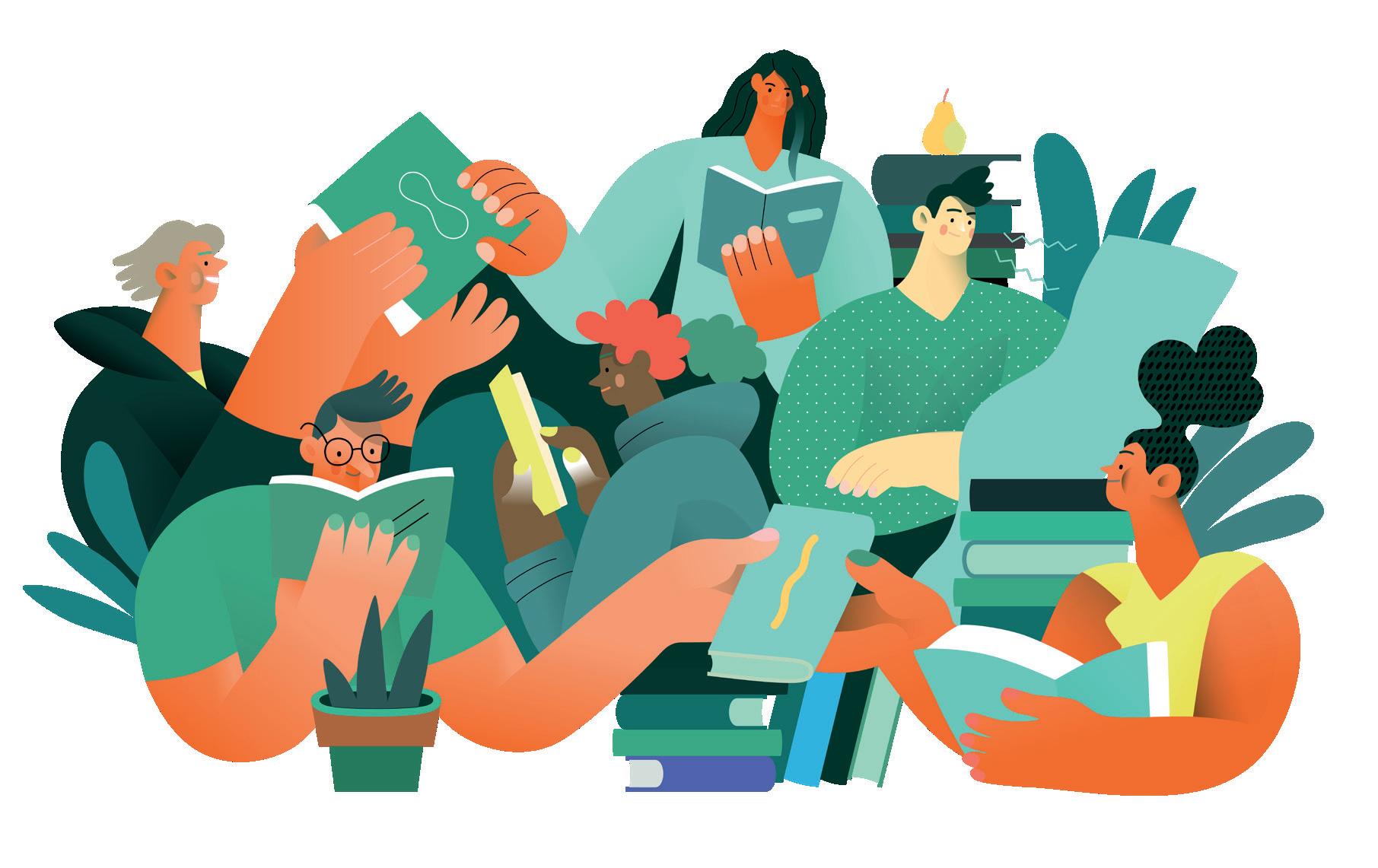
The nature of education is changing. To keep up with the ever-evolving expectations of learners, academic institutions must become more agile, innovative and collaborative.

In a world of fast-paced technological innovation, nothing stands still. The education sector is no exception.
Lifelong, personalised digital learning “Technology has changed the way we work, shop, bank and communicate,” says Conor O’Dwyer, Head of Government and Public Sector at professional services provider, Grant Thornton. Gone are the days when graduates left university, found jobs and never had to think about study again. There’s now an increasing demand for modular educational experiences that can be consumed in bite-sized chunks by students of all ages and backgrounds, either online or in person. We have entered the age of personalised, skills-based lifelong learning.
How sweeping change leads to shifts in expectations
To remain relevant, colleges and universities must optimise their educational offerings and make them more accessible to a wider student cohort. They have to become far more agile and open to rapid adaptation, iterative innovation and better collaboration, both with competing institutions and industry.
“This challenge isn’t going away,” notes O’Dwyer. “In fact, with the advent of generative AI, it’s reasonable to expect the pace of change to accelerate, and learner expectations to become even more sophisticated in the years ahead.”
Looking internationally, it’s clear this isn’t just a local phenomenon. Dennis Morrone, GT’s Global Head of Higher Education, sees even more pronounced changes in the US. “Rising tuition costs, a competitive labour market and a growing perception that the US economy is shifting toward vocational and skills-based employment, have led to scepticism about the return on investment of traditional college education,” Morrone notes. “The Higher Education sector is also grappling with structural shifts globally due to financial and demographic challenges.”
Against this backdrop, Higher Education Institutions in Ireland must start their agility journey with leaders making a top-down commitment to student-centred change. It’s about building capability, embedding agile principles into governance structures, aligning institutional strategies and helping staff (and students, in some cases) understand what changes are happening and
why they are necessary.
Some academic institutions will be used to this type of change in a slow and deliberate way. “However, we need to move away from that,” O’Dwyer adds. “There must be more willingness to learn quickly, test, iterate — and fail, ideally fast. If failure isn’t an option, people are afraid to try new things and innovation and agility can never be achieved.”
Why our Technological Universities are models of agility
Thankfully, there is a successful example to follow: Ireland’s technological universities. First established in 2019 with the creation of TU Dublin (a merger between three Institutes of Technology), they have shown how reform catalyses agility. Another example can be seen with Higher Education clusters, which were formalised in 2011 as part of the Government’s National Strategy for Higher Education.
“The good news is that the educational sector doesn’t have to start the process of building agility from scratch because changes like these mean the sector has experienced considerable change in recent years,” says O’Dwyer. “These policy changes, now implemented, have delivered institutions that share academic planning, give students more choice and engage with industry and community.”
Data-led education strategy
Finally, it’s important to recognise that data-driven decision-making is the backbone of agile transformation. To respond to emerging needs with precision and foresight, academic institutions should ensure they employ enhanced data management and analytics capabilities. This can help them understand, for example, the skills needed to support growth in different sectors, nationally and regionally.
“The skills students developed five years ago won’t be the skills they’ll need five years from now,” emphasises O’Dwyer.
Expert support for agile transformation
Becoming agile isn’t easy, so institutions should be prepared to call on external support. “We have considerable experience working with clients across the education sector,” says O’Dwyer. “We bring large programme delivery experience and help them build change management capability across programme teams and senior leadership to maximise the likelihood of success when making significant investments in complex transformation. This is where Grant Thornton can bring real value.”
Conor O’Dwyer Head of Government and Public Sector, Grant Thornton
Sponsored by Grant Thornton
WRITTEN BY Tony Greenway
Image provided by Grant Thornton
How clear and flexible learning is shaping the future of Irish education
Reforms to the education landscape have opened up opportunities and made learning pathways clearer, more inclusive and accessible. It’s essential in a changing world of work.

WRITTEN BY
Over the last five years, Ireland’s further and higher education sector has undergone significant reform. That’s good news for learners, who are now benefitting from a variety of clear, flexible and inclusive education pathways, notes Ali O’Sullivan, Education Lead Ireland for professional services firm, Grant Thornton.
Opening new education pathways
“Traditionally, Ireland’s further and higher education landscape was seen as fragmented and opaque,” she says. “But since the Department of Further and Higher Education, Research, Innovation and Science (DFHERIS) was established in 2020, there’s been real, positive change within the sector.”
For a start, more attention has been paid to creating alternative educational routes for school-leavers. “Doing well in your Leaving Certificate examinations — and then applying to the Central Applications Office (CAO) — was once seen as the only way to success,” remembers O’Sullivan. “That’s been turned on its head. Students now realise that many other pathways are open to them.”
Sharpening the focus on a range of apprenticeship programmes
be able to thrive in this new environment, employees have to be adaptable and embrace the need for lifelong learning. In turn, they must feel supported by their employers when they ask to take part in blended learning and modular learning opportunities or want to study micro credentials and shorter courses.”
Collaboration between government, education providers and industry
If new learning initiatives are to be implemented coherently, it’s imperative for government, education providers and industry to work closely together.
They could go the apprenticeship route, for instance, which offers hands-on, earn-while-youlearn training. “Previously, there was a male bias to apprenticeship programmes,” says O’Sullivan. “Now, they are much more inclusive.” A broader range of courses are available, too.
Then there are Joint Tertiary Programmes which help “join the dots” between further education and higher education. Students get the chance to begin third level study at an Education and Training Board (ETB), before transferring to a traditional or technological university.
Flexible learning for future workplace readiness
These changes are essential in a new world of work. Like it or not, the workplace is being transformed by new technology, so employers are increasingly prioritising skills over traditional credentials. This means the way we learn has to evolve, and that academic institutions must make lifelong learning opportunities ultra-accessible to anyone of any age who is seeking to upskill or reskill. Going forward, education must continue to shift towards flexible, skills-based models. It’s essential for workplace readiness.
“AI is changing the way we work,” says O’Sullivan. “To
If new learning initiatives are to be implemented coherently, it’s imperative for government, education providers and industry to work closely together. A good example is an initiative called Skills to Advance, which is run by SOLAS — the state agency responsible for Further Education and Training in Ireland — working with Regional Skills managers and partners in Education and Training Boards. “This supports enterprises of all sizes in identifying skills gaps within their business,” explains O’Sullivan. “It then provides them with fully funded, flexible training courses for their workforce to reskill and upskill.”
Inclusive, accessible learning approaches
Naturally, it’s critical that any new learning pathways support a cohort of diverse learners, including adult returners, those with special education needs and under-represented groups. “Further education providers and higher education providers must challenge themselves,” says O’Sullivan. “They have to ensure they are fully accessible to all, in terms of course content, delivery and their learning environments.” If they fail to do this, she warns, existing inequalities will only deepen.
For its part, Grant Thornton has been at the forefront of educational transformation in Ireland, partnering with Education and Training Boards and universities to design and implement new learning pathways. “Increasing opportunities, options and inclusion for students remains at the core of what we do,” says O’Sullivan. “So much has been achieved in the sector, but there is still a road to travel.

Ali O’Sullivan Education Lead, Grant Thornton Ireland
Tony Greenway
Consent education for boys and young men: why we have a role to play

Learn how to support boys and young men in building consent skills, emotional resilience and healthy relationships.
There is increasing recognition that young people need support to achieve emotional resilience, personal confidence and genuine connections with the people around them — with increasing concern about how to ensure that boys and young men achieve these life skills. We, at the Active* Consent team at the University of Galway, contribute to this goal by encouraging young people and the adults who support them to have consent conversations.
Conversations on consent education

Active* Consent carries out research on consent, sexual violence and harassment. We create and deliver educational workshops and resources for young people, teachers, parents and professionals. What have we learned from this? Boys and young men are open to conversations on consent education with the right supports — including receiving the right information, being listened to and having their views valued.
Up to 80% of boys and young men agree that you should ask for consent before any form of intimacy, including kissing or touching. A large majority also say that their peers agree that consent is important.
Consent is still under-discussed
Do we have a positive and active consent culture across our society? Unfortunately, the answer is no, partly because consent is not being talked about enough. Half of the young adult men we surveyed said that they have not
Apprenticeships:
powering Ireland’s skills future through collaboration
In today’s fast-evolving world of work, building an inclusive, accessible and agile lifelong learning system is not a luxury — it’s a necessity.

The system must be built on collaboration: between the Government, academia and industry. Apprenticeships sit at the very heart of this partnership.
discussed consent with a friend or heard consent being discussed by peers. While we worry about the impact of pornography and social media on sexual attitudes, far more young men tell us that their sex education was formed by parents, friends, romantic partners and school.
Empowering consent through resources and support
How can parents, teachers and peers help promote active consent culture and healthy relationships? We offer eLearning, group workshops and drama-based resources for young people, plus the training adults need to bring these safely into an educational environment. We also have a masculinity workshop that engages young men on empathy, communication and compassion, which are essential to inclusive and respectful environments.
Take one action this week
We recommend three steps to successful consent conversations:
Talk: Start a conversation with a young man in your life about the importance of consent and emotional openness. Use real-life examples from media or current affairs.
Share: Share your own experiences and insights regarding relationships, respect and vulnerability. Your openness can inspire others.
Listen: Take the time to listen to a young man’s thoughts and feelings. Encourage them to express themselves. This opens up conversations.

aviation employers across the country.
Meeting global aviation demand Ireland is a global aviation hub. We manage 60% of the world’s leased aircraft, and our aircraft maintenance, repair and overhaul sector contributes €370 million to the economy and supports 3,200 jobs. Demand for licensed aircraft maintenance engineers continues to grow, both here and internationally. Meeting that demand with a skilled, futureready workforce is essential for our competitiveness.

Expanding aviation apprenticeships
Apprenticeships offer realworld training, internationally recognised qualifications and a direct route to rewarding careers. Crucially, they allow learners of all ages and backgrounds to earn while they learn, developing skills aligned with industry needs. As Minister for Further and Higher
and Science, I’m proud to see this model delivering for both learners and the economy. Nowhere is this clearer than in our aircraft mechanic apprenticeship programme. We recently announced a doubling of training places, from 79 to up to 160 by September 2025. This means 80 new apprentice jobs in our aviation sector. This expansion is the product of close collaboration between my Department, the National Apprenticeship Office, education and training providers and key
This expansion is just the beginning. We’ve tasked SOLAS with developing a dedicated national Centre of Excellence for aircraft mechanic training by 2028. This ensures our apprentices are trained to the highest international standards in facilities that match the ambition of the sector.
This is our Action Plan for Apprenticeship 2021–2025 in motion: responsive, ambitious and aligned with real economic needs. By embedding skills development into our national growth strategy, we are strengthening pathways for learners and ensuring Irish enterprise can access the talent it needs to thrive.

Pádraig MacNeela Principal Investigator and Co-Lead, Active* Consent
Clarissa DiSantis, Education and Training Lead, Active* Consent
James Lawless Minister, Department of Further and Higher Education, Research, Innovation and Science
How to create responsible citizens — by empowering the teachers of tomorrow
A network of educators focused on embedding global citizenship and sustainability within post-primary teacher education.
In a world marked by war, inequality, a climate crisis, forced migration and rising far-right ideologies, democracy and human dignity are under threat. For post-primary teachers in Ireland, it’s no longer enough to be technically competent in their specialised fields. They are increasingly called to engage with social justice and sustainability through Global Citizenship Education (GCE) and Education for Sustainable Development (ESD). These approaches foster critical thinking, awareness of power and informed action for change. Since 2005, the Ubuntu Network based at the School of Education, University of Limerick, has led efforts to embed this learning into post-primary teacher education.
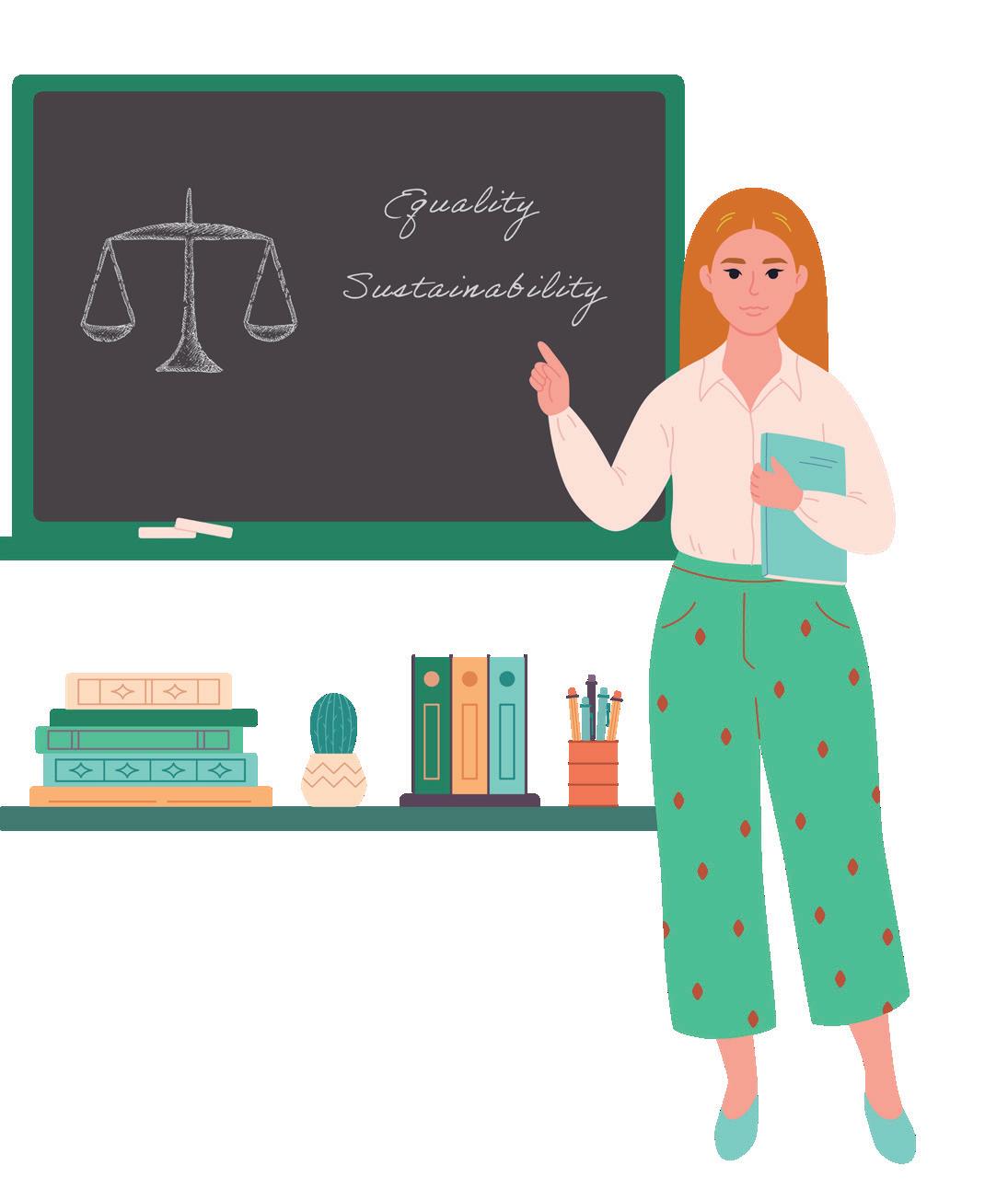
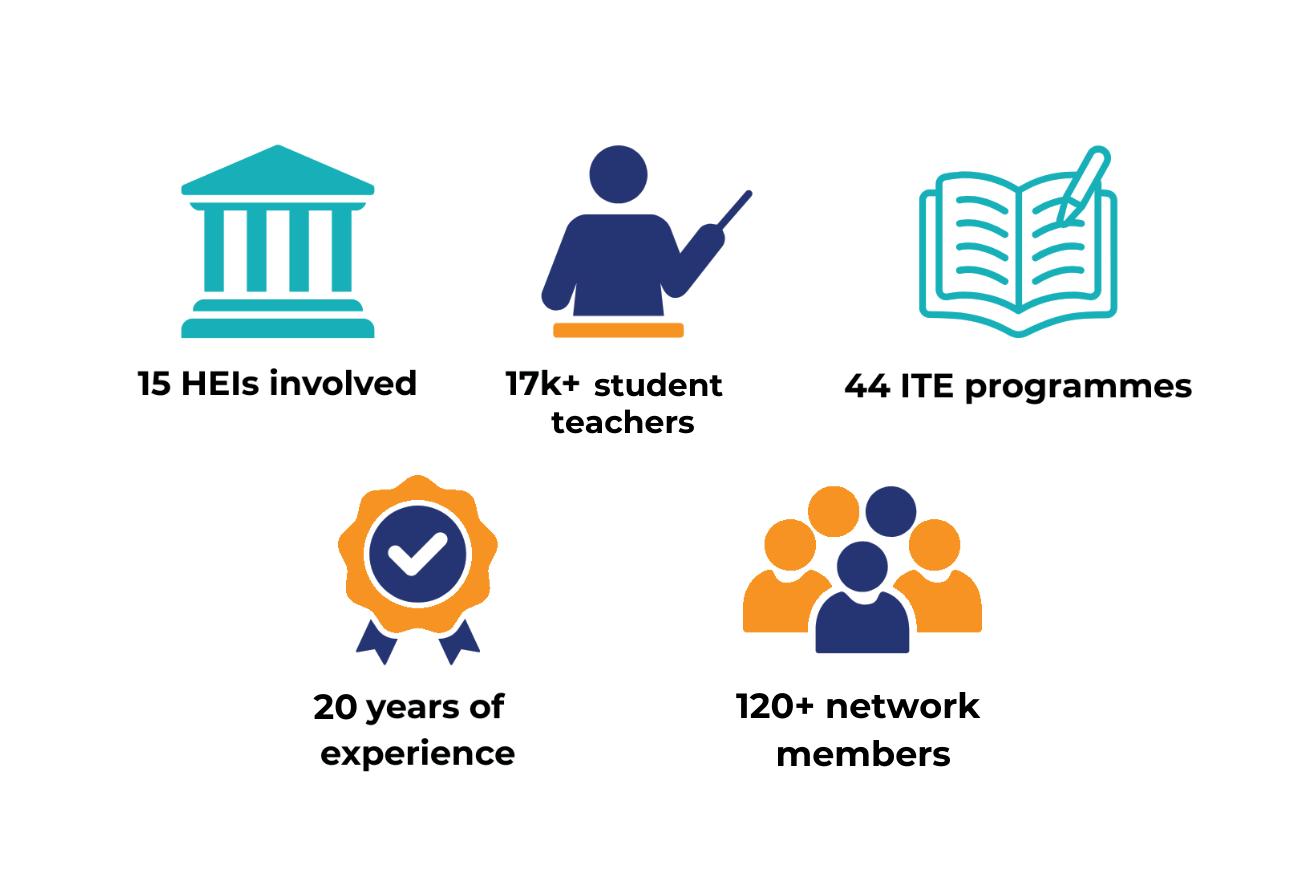
Embedding citizenship in post-primary teacher education
If teachers can successfully bring issues of social justice and sustainability into their classrooms, their pupils are more likely to emerge at the end of their school journeys as rounded and responsible citizens.
who seek to integrate into their teaching, perspectives that encourage engagement to build a more just and sustainable world.”
This approach is needed now more than ever, notes Hogan. “In the past, GCE and ESD existed on the periphery of teacher education,” she says. “In today’s world, it’s crucial that they are at the heart of education because socially, economically, environmentally and politically, we are all affected by what goes on both locally and globally.” Indeed, this is how the network gets its name: Ubuntu is an African concept describing ‘the essential bond of sharing which connects all humanity.’
The initiative, funded by Irish Aid, Department of Foreign Affairs and Trade, works in four interconnected areas. First, it supports curricular interventions that embed GCE in teaching, learning and assessment processes, aligned with the Céim Standards for Teaching Council accreditation.
Professional development and peer learning
Second, it builds the capacity of teacher educators through communities of practice, professional development events and peer learning. “Ascertaining and addressing the needs of teacher educators is a core area of our work,” says Dr Joanne O’Flaherty, Research Lead, Ubuntu Network. “For example, we hold two flagship events annually where all interested stakeholders come together to talk to each other and share practice.”
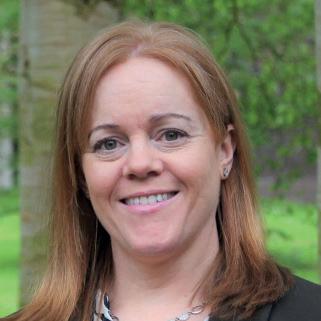
Ascertaining and addressing the needs of teacher educators is a core area of our work.



To make this a reality, GCE and ESD must be a central focus of post-primary teacher education. The Ubuntu Network plays a significant role in this effort, promoting a model of education that encourages reflection and action on global challenges. Comprising educators from 15 higher education institutions and NGO partners, the network supports the integration of justice, equality, inclusion and sustainability into post-primary teacher education through collaboration, peer learning and research-informed practice.
Integrating Global Citizenship Education into teaching
“Our focus is on supporting teacher educators to integrate core concepts of GCE and ESD into their practice in a way that resonates with the student teachers who will ultimately be working in post-primary schools in Ireland,” explains Deirdre Hogan, Project Coordinator, Ubuntu Network. “Arising from this work, we see graduates enter the teaching profession as active global citizens
Third, the network gathers and analyses research data to demonstrate the impact of its partnerships and projects. It also provides a research hub for its members to point them to the latest thinking on GCE. Lastly, it operates an outreach policy, inviting stakeholders to share learning and advocate for the prominence of GCE in policy, curriculum and practice.
Social justice, equity and education
The network has had significant reach and impact since its founding. “In the last academic year, we engaged more than 3,000 student teachers across 31 programmes,” says Dr O’Flaherty. “We also hosted capacity-building events, engaging 138 educators, with the majority of participants reporting a positive influence on their professional practice.”
O’Flaherty credits that success to one key element. “When you engage with our network, you engage with a community where dialogue and principles of social justice, equity and education for sustainable development are core,” she says.
“The strength of our network is our members.”
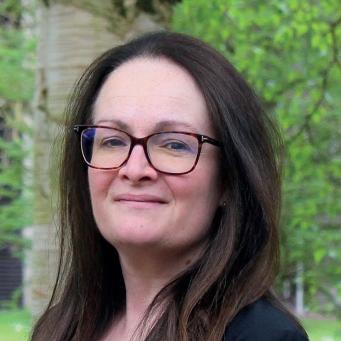

Dr Joanne O’Flaherty Research Lead, Ubuntu Network
Deirdre Hogan Project Coordinator, Ubuntu Network
Teja Solar Communications and Digital Media Officer, Ubuntu Network
ubuntu.ie
Sponsored
Infographic provided by Ubuntu Network
WRITTEN BY Tony Greenway
Why learning EU languages matters for Ireland’s place in Europe
Irish citizens have shaped the EU for over 50 years. More Irish candidates with strong language skills are needed to maintain and strengthen our influence in the EU.
The work of the EU is wide-ranging, so it recruits people with a variety of interests, skill sets and backgrounds.
Amplifying Irish voices in Europe
Irish representation is vital across EU bodies like the European Commission, the European Parliament, the Court of Justice and over 50 specialised agencies dealing with issues such as human rights, cybersecurity and public health. EU officials represent 450 million citizens, bringing essential knowledge of their home countries, which helps shape inclusive, well-informed policies.
Language skills for rewarding careers
To ensure the continued representation at EU level, the next generation of Irish graduates are encouraged to apply for permanent roles within the EU. The opportunities are vast — in law, diplomacy, the environment, digital policy or economic reform. However, to gain access, expertise in EU languages is essential. Fluency in one EU language, along with proficiency in at least one other, is required for EU recruitment competitions. Without a second EU language, many well-qualified Irish candidates miss out on roles where they could thrive.
Pathways into EU leadership
A key opportunity approaches: the AD5 Generalist Administrators competition, one of the main routes into the EU civil service. It is open to graduates from all disciplines but requires knowledge of two EU languages; one fluent, the other at B2 (upper-intermediate) level. It’s a competitive process, but the reward is a meaningful, rewarding career. Ireland has already produced leaders at the highest levels of the EU, but to continue that legacy, the next generation needs to step up.
As students plan their future, they are encouraged to consider the EU. With language skills, curiosity and ambition, they can play a real role in Europe’s future — an opportunity to make a meaningful difference not just in Ireland, but across Europe. Support is available. The Irish Government is committed to helping candidates succeed, with resources, training and expert advice.
Entrepreneurship for life: building mindsets, not just startups
Entrepreneurship education builds adaptable, resilient mindsets — beyond startups. Discover how initiatives are redefining lifelong learning through creativity, collaboration and digital-age skills.
When most people think of entrepreneurship education, they imagine business pitches, tech startups and flashy prototypes. Yet, the real value of entrepreneurship learning goes far beyond launching a company. It’s about cultivating mindsets that help people adapt, innovate and thrive in an uncertain world.
Entrepreneurial skills boost adaptability
The ‘European Entrepreneurship Competence Framework’ (EntreComp) defines this mindset through a range of key skills: financial literacy, creativity, collaboration, perseverance, selfawareness, ethical behaviour and strategic planning. These abilities lay the foundation for resilience and opportunity-seeking in any career, not just business creation.
This approach is gaining momentum in Québec, Canada. As highlighted in the OECD’s ‘Geography of Higher Education in Québec,’ nearly 50% of the province’s higher education institutions now offer entrepreneurship activities or programmes. These institutions recognise the importance of developing transferable skills like creativity and adaptability. These are qualities that are increasingly sought after in today’s fast-changing economy.
At the University of Sherbrooke, entrepreneurship education is especially popular among doctoral and post-doctoral students, most of whom will pursue careers outside academia. As digital transformation reshapes industries, particularly through technologies like artificial intelligence, the demand for entrepreneurial skills is growing rapidly.
Mindset can be more valuable than formal training
Data from the upcoming 2025 OECD ‘Digital for SMEs’ Survey shows that many small businesses acquire digital skills informally, often through internet research and peer learning. In such settings, an entrepreneurial mindset, resourceful, proactive and curious, can be more valuable than formal training.
Importantly, this kind of education doesn’t aim to turn everyone into a founder. It prepares people to thrive in any context. The Covid-19 pandemic illustrated this clearly. Entire industries were upended, and people had to pivot, reinvent their skill sets and find new paths. Research from King’s College London found that those with entrepreneurial mindsets were better able to adapt, sustain their ventures and protect their wellbeing during the crisis.

Sponsored by Languages Connect
Thomas Byrne T.D. Minister


Entrepreneurship enables lifelong learning Entrepreneurship education, then, must be seen as a cornerstone of lifelong learning. It equips individuals to create value wherever they are — whether in startups, nonprofits, public service or established businesses. In a world of constant change, that’s not just good education. It’s essential preparation for life.

Breaking the cycle and building the future for young people in Dublin
Game-changing tailored programmes and summer employment training are helping young people in Dublin build confidence, skills and pathways to education or work.
Dublin South City Partnership (DSCP) is a local development company responsible for delivering the Social Inclusion and Community Activation Programme (SICAP) across Dublin 6, 8 and 12. A core objective under SICAP’s Lifelong Learning remit is to support young people — particularly those from disadvantaged backgrounds — to build their capacity and increase employment and education outcomes.
Bridging the gap: from school to what’s next
One of the most critical transitions in a young person’s life is the move from secondary school into further education, training or employment. While some students have a clear plan, many experience uncertainty during this time. In communities facing intergenerational unemployment and low progression rates to third level, the risk of young people ‘falling through the cracks’ is particularly high.
A tailored, responsive approach
To address these challenges, DSCP actively engages with local DEIS secondary schools throughout the academic year to identify service gaps and barriers to progression. In response to school needs, its programmes include life coaching for Leaving Certificate Applied students; grinds in core subjects; and study skills workshops. All initiatives are designed to address educational disadvantage and increase progression.
Summer Employment Series: skills for life and work
In Spring 2025, senior cycle students from targeted DEIS schools were invited to register for the Summer Employment Series. This initiative aims to build young people’s confidence and readiness for life after school. DSCP covers all costs for practical, employment-focused training, including barista training; customer service skills; and manual handling. These courses provide young people with tangible employment opportunities while helping them develop key life skills. Participants will also benefit from broader supports, including access to our SICAP employment team and connections with employers through our dedicated Employer Engagement Officer.
Relationship-centred support
At the centre of DSCP’s work with young people is relationship building. Our programmes are delivered in an informal, person-centred way that fosters trust and growth. Young people know that we are there for them — not just during a course, but whenever they need support in the future.
Giorgia Ponti Economist/Policy Analyst, OECD

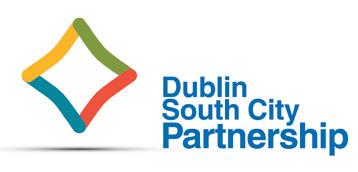
Úna Carson Lifelong Learning Team - School Age Children and Young People, Dublin South City Partnership
How to make upskilling work for people, places and productivity
The success of green, digital and demographic transitions depends not just on technology or goals, but on people and the places they live and work.

Recent OECD work shows that the places most at risk of job displacement due to automation or industrial change are often those least equipped to respond. This regional imbalance is not new, but it is becoming more urgent.
In some OECD regions, over 25% of jobs are at high risk of automation, while others face a surge in demand for green and digital skills, with insufficient training provision in place. Without targeted investment, these transitions could deepen divides. However, with the right policies, they offer a historic opportunity to boost both equity and productivity.

Place-based skills strategies are essential
Local labour markets vary dramatically in their structure, vulnerabilities and capacity to adapt. Yet, training policies are often designed at the national level. This mismatch weakens their impact.
The OECD’s Job Creation and Local Economic Development report highlights the growing need for place-sensitive upskilling and reskilling programmes. Regions facing industrial decline need tailored support to shift workers into new, sustainable industries. This means aligning training with local assets, from green manufacturing to rural health care to digital services.
France’s Plan d’Investissements dans les Compétences (PIC) channels EUR 15 billion into training low-skilled
Why ‘enterprise engagement’ is about universities listening — not lecturing
Connections between enterprises and universities have the potential to yield benefits for all. Managed correctly, these partnerships for progress yield significant societal advantages.
“When we engage with enterprise, everybody wins,” notes Professor Irene Sheridan, Head of Extended Campus at Munster Technological University (MTU). “We benefit by learning about the opportunities and challenges of enterprise, which helps make our teaching real and relevant. Enterprise benefits because it has access to our forward-thinking talent, facilities and research groups.”
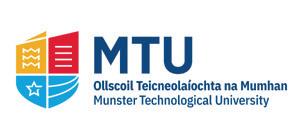
youth and the long-term unemployed. Half of this supports regional programmes tailored to local labour needs, with public-private partnerships supporting green transition roles.
Early action reduces long-term costs
Industrial transitions take time, but delays are costly. OECD analysis shows that when training lags labourmarket needs, regions risk long-term stagnation and skills shortages. By 2042, 72% of OECD regions could face tighter labour markets due to demographic shifts, underlining the urgency of early investment in vocational education and digital access.
Canada’s Future Skills Centre offers both national and regional programmes focused on digital skills, AI and the green transition. Its emphasis on early action and local tailoring offers a model for others.
From recovery to resilience
Delivering effective training requires coordination across governments, employers and education providers. Local skills councils, employer-led hubs and flexible funding models work best when regions have the capacity to act.
Upskilling isn’t a silver bullet, but it’s one of the few tools that can boost productivity, reduce inequality and support the green transition — if rooted in place and embedded in wider regional strategies.

“‘Enterprise’ doesn’t simply mean big and small profit-making businesses,” says Professor Sheridan. “It includes organisations in the public sector, not-for-profits, charities, hospitals and other educational institutions. We work closely with all of these to exchange knowledge, promote social and cultural links and foster societal wellbeing.”
Broad range of interactions with enterprise
Enterprise’s role in their region Finally, the region wins, too. That shouldn’t be downplayed, explains Professor Sheridan, because The Technological Universities Act 2018 — which defines the functions of Ireland’s Technological Universities — stresses that institutions should pay particular regard to the needs of their regions.
Nevertheless, the broad range of interactions between MTU and enterprise can have national and international impacts. Relationships are carefully cultivated and are twoway streets. “They usually start in small ways,” says Dr Deirdre Goggin, a member of the MTU Extended Campus team. “It might involve an organisation contacting us with a research and development query or
about supporting lifelong learning in the workplace. The relationship can grow when they realise we have research and innovation strengths in other areas. Over a longer period, our individual interactions and collaborations develop into long-term partnerships.”
Listening carefully to customise solutions for enterprise
However, cautions Dr Goggin, when enterprise engagement is conducted by a university as an ‘add-on,’ it risks becoming siloed, and the potential for interactions across campus can remain unfulfilled. To prevent this, MTU manages its enterprise relationships in a deliberate way that integrates value across all departments.
“We wanted to create a coherent offering with a single point of contact,” says Professor Sheridan. “An organisation can then be immediately linked to the right people. We’re also proactive, going out to industry to say: ‘We’ve accomplished this with an organisation, and we could do the same for you.’ It’s about being dynamic and flexible and listening to, not lecturing, our partners to understand their needs. We can then customise solutions and courses accordingly so that the campus can extend into the workplace, and, equally, the workplace can extend into the campus.”
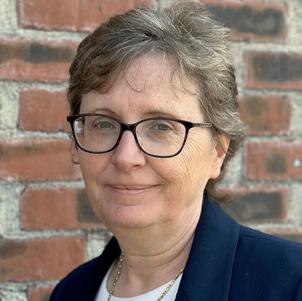

Lukas KleineRueschkamp Head of Unit, Local Employment and Skills, OECD
Patricia Peñalosa Policy Analyst, Regional Labour Policy, OECD
Professor Irene Sheridan Head of Extended Campus, Munster Technological University
Dr Deirdre Goggin Recognition of Prior Learning and Work Integrated Learning, MTU Extended Campus
WRITTEN BY
Tony Greenway

Ahead of upskilling and reskilling employees, we must ensure that our education system is preparing students for the future world of work.
~Gillian Audet, Executive, Technology Ireland
Read more on Page 02
